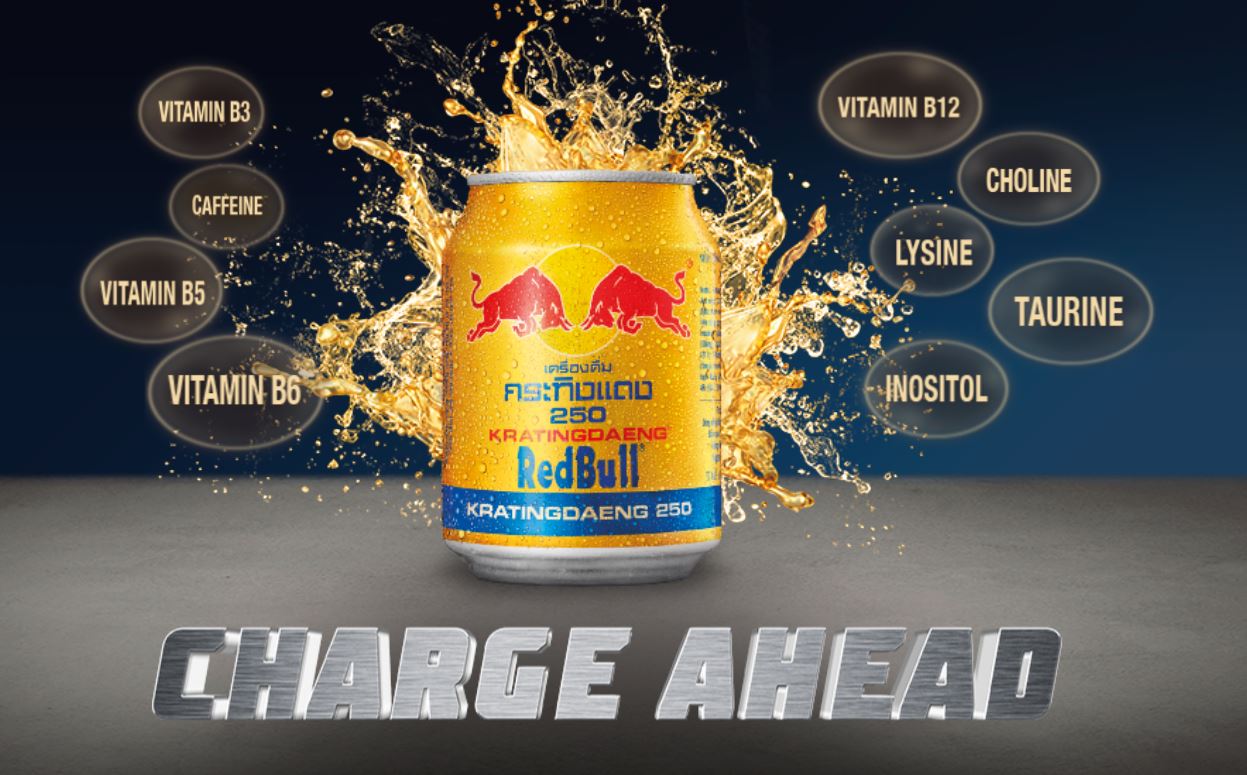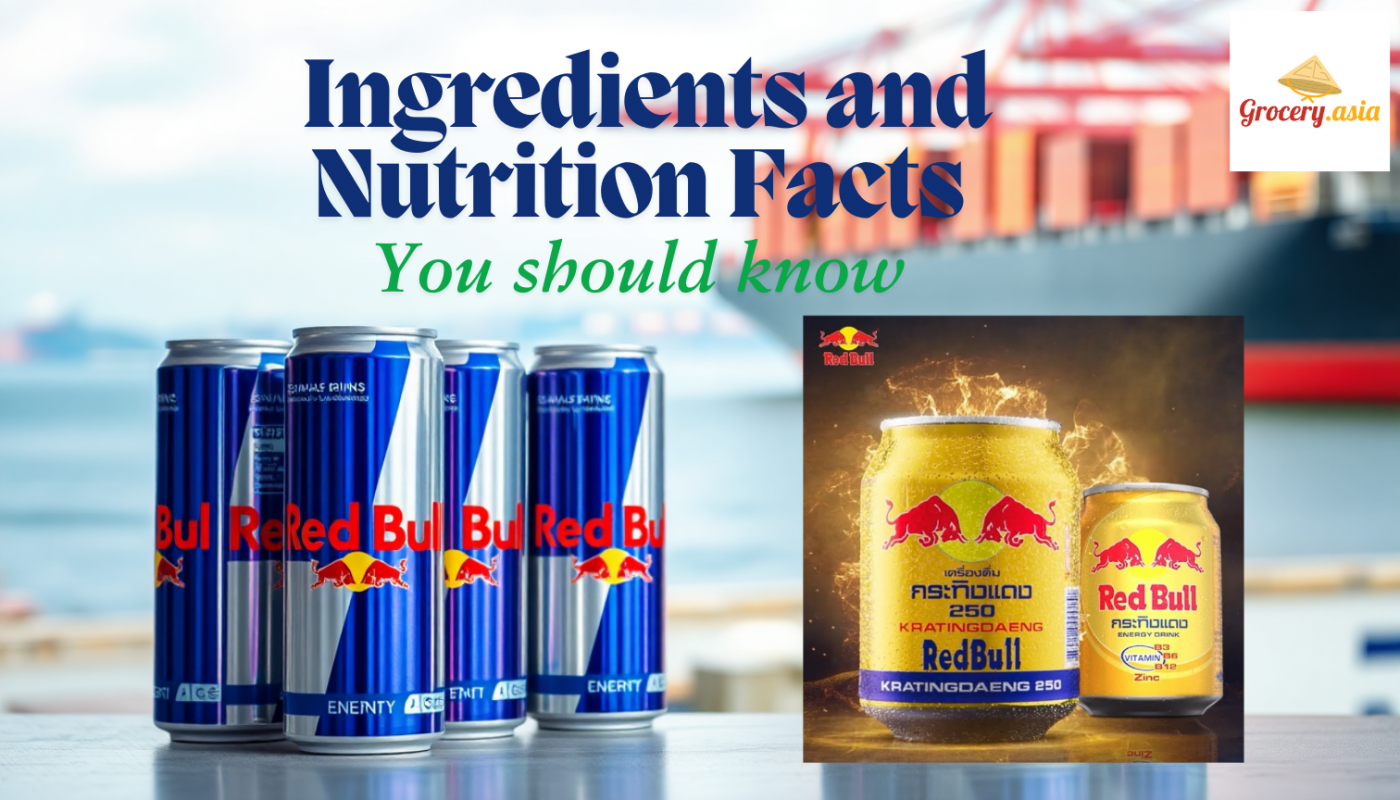No products in the cart.
Beverages News, Energy Drinks, Red Bull Energy Drink
Red Bull Energy Drink Ingredients and Nutrition Facts You Should Know
Table of Contents
Red Bull Energy Drink: Ingredients and Nutrition Facts You Should Know
Have you ever wondered what’s in that can of Red Bull you reach for during your late-night study sessions or afternoon slumps? It’s more than just a fizzy drink; it’s a blend of ingredients designed to give you that much-needed energy boost. In this post, I’ll peel back the layers on the ingredients and nutrition facts of Red Bull Energy Drink, so you can make informed choices about your energy consumption.
Understanding Red Bull Energy Drink Ingredients
Red Bull contains a mix of both familiar and less common components. Here’s a breakdown of what you’ll find in a standard 12 fl oz can:
- Carbonated Water
- Sugar (Sucrose and Glucose) – 37-38 grams
- Citric Acid
- Taurine – 1000 mg
- Natural and Artificial Flavors
- Sodium Citrate
- Caffeine – 114 mg
- Colors
- Niacinamide (Vitamin B3)
- Pyridoxine HCl (Vitamin B6)
- Calcium Pantothenate (Vitamin B5)
- Vitamin B12
Exploring Red Bull Nutrition Facts
Now that I’ve broken down the ingredients, let’s dig into the nutritional information. Knowing how these components stack against your dietary needs is crucial. Here are the key nutrition facts for a 12 fl oz can:
- Calories: 160
- Total Fat: 0g
- Total Sugars: 38-63 grams (depending on can size)
- Sodium: 150 mg
- Total Carbohydrates: 41g
- Protein: 0g
Key Considerations About Red Bull
There are a few more things to note when it comes to Red Bull:
- There are sugar-free versions that use artificial sweeteners like aspartame, acesulfame K, and sucralose.
- Taurine, a popular ingredient in energy drinks, is synthetically produced and is not derived from animal sources, so don’t worry—there’s no bull semen or urine in your can!
- It’s free from wheat, dairy, gluten, and lactose, making it suitable for various dietary restrictions.
- However, it’s not recommended for children, pregnant, nursing women, and those sensitive to caffeine.

Learn more about Red Bull Energy Drink here.
Why Red Bull Contains B Vitamins
B vitamins play a crucial role in converting food into energy, and they’re featured prominently in Red Bull. Here’s a quick look at the B vitamins present:
- Niacinamide (Vitamin B3)
- Pyridoxine HCl (Vitamin B6)
- Calcium Pantothenate (Vitamin B5)
- Vitamin B12
These vitamins not only support energy metabolism but also help maintain a healthy nervous system.

Discover more about Red Bull products.
Red Bull Caffeine Content
Caffeine is often a main concern when looking at energy drinks. In a standard 12 fl oz can of Red Bull, you’ll find:
- 114 mg of Caffeine
This is a moderate amount of caffeine compared to other energy drinks, making it essential to consider your overall caffeine consumption throughout the day.
Conclusion
In summary, Red Bull Energy Drink contains a blend of ingredients designed to provide a quick energy boost, including caffeine, taurine, sugars, and several B vitamins. While it can be beneficial in moderation, it’s crucial to stay informed about its content, especially considering the sugar and caffeine levels. Always remember to consume it responsibly, and I encourage you to think about your personal dietary needs as you decide whether Red Bull is the right choice for you.
What Are Your Thoughts on Red Bull?
Let me know in the comments below if you love or loathe this energy drink! Don’t forget to share this post with your friends and subscribe for more interesting content.
FAQ Section
What are the ingredients in Red Bull energy drink?
Red Bull energy drink ingredients include carbonated water, sugar, citric acid, taurine, caffeine, B vitamins, and more.
What are the nutrition facts of Red Bull?
Red Bull nutrition facts for a 12 fl oz can include 160 calories, 0g total fat, 41g total carbohydrates, 38-63g total sugars, and 0g protein.
How much caffeine is in Red Bull?
Red Bull caffeine content is 114 mg per 12 fl oz can and 189 mg per 20 fl oz can.
What is the sugar content in Red Bull?
Red Bull sugar content ranges from 38-63 grams depending on the can size.
What are the benefits of taurine in Red Bull?
Red Bull taurine benefits include improved athletic performance and increased energy and alertness.
How many calories are in Red Bull?
Red Bull calorie count is 160 calories per 12 fl oz can and 270 calories for a 20 fl oz can.
Is Red Bull vegetarian and gluten-free?
Yes, Red Bull is free from wheat, dairy, gluten, and lactose, making it suitable for both vegetarians and those with gluten intolerance.
What are the allergen information of Red Bull?
Red Bull contains no allergens associated with wheat or dairy products.
Does Red Bull contain artificial flavors and colors?
Yes, Red Bull includes both natural and artificial flavors, as well as added colors.
How does Red Bull compare to other energy drinks?
Red Bull contains moderate caffeine and sugar levels compared to many other energy drinks on the market.
Are there sugar-free options available for Red Bull?
Yes, Red Bull offers sugar-free and zero-calorie options that use artificial sweeteners.
What are the health effects of consuming Red Bull?
While Red Bull can provide an energy boost, excessive consumption may lead to negative health effects such as increased heart rate and anxiety in some individuals.
What is the recommended consumption guideline for Red Bull?
It is recommended to limit consumption to one can per day, particularly for those sensitive to caffeine and sugar.


